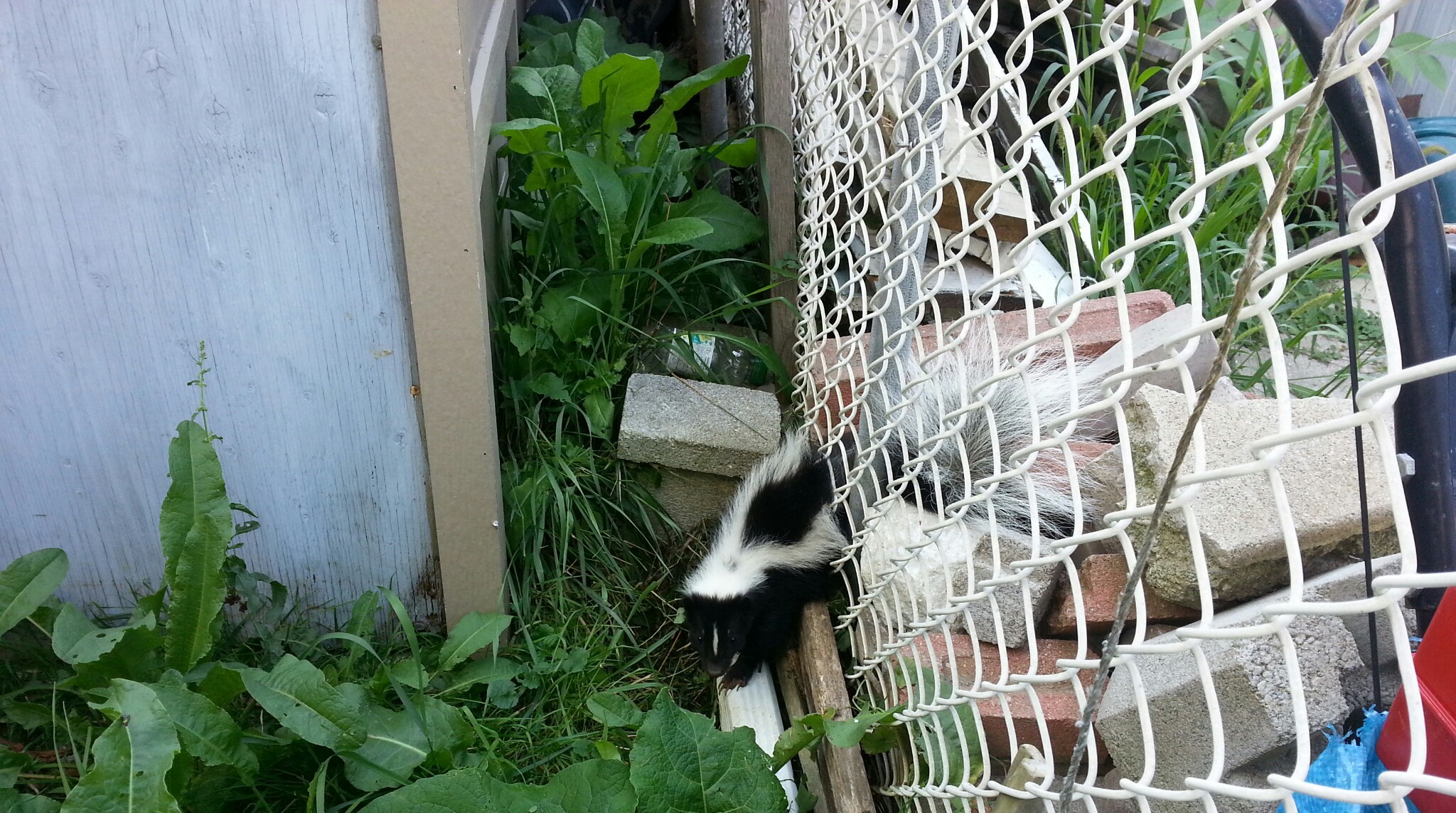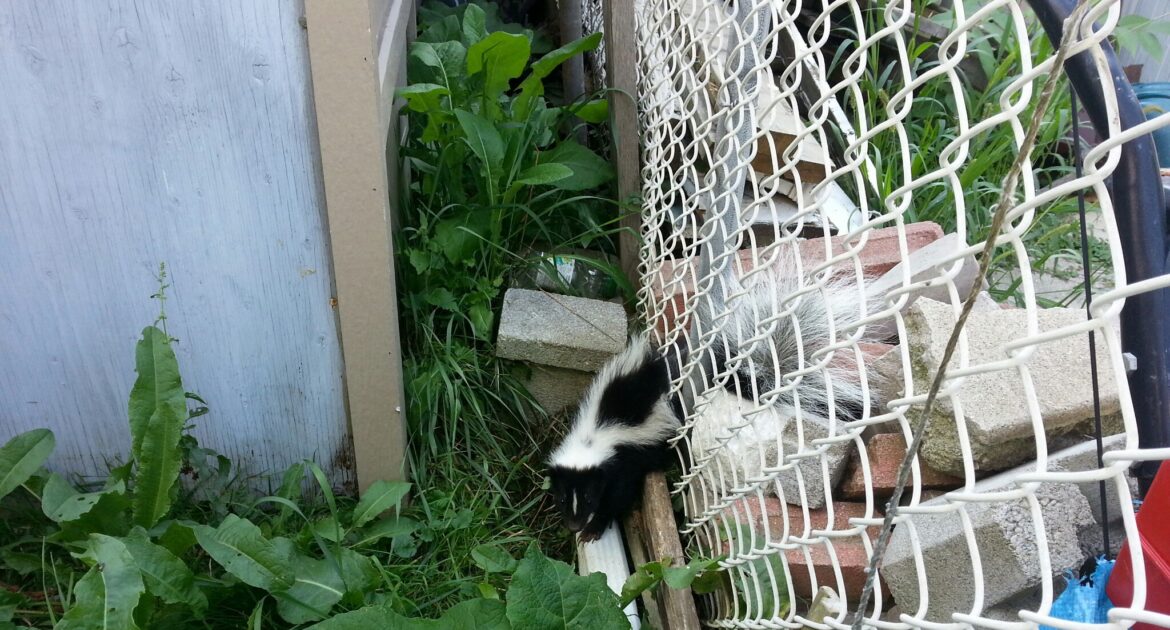Spring might bring blooming flowers and warmer days, but in Denver and beyond, it also signals the start of an annual phenomenon that many homeowners dread. This is the season when skunk mating activity peaks, and it tends to lead to summer skunk challenges that can significantly disrupt life around your home. During this time, skunks are more active, marking territory, creating dens, and hunting for food. These behaviors can create serious problems for homeowners, from unpleasant smells to damaged yards and increased health risks when these animals take up residence on your property. Understanding skunk behavior in summer is important for addressing these issues before they escalate.
Here, we’ll look at the unique summer challenges associated with skunk activity, the warning signs of a potential issue, and practical steps you can take to protect your home and property.
Skunk Mating Season Problems to Watch For
Spring marks the beginning of mating season, which sets the stage for summer challenges. Male skunks become more territorial and aggressive during this time, engaging in fights and marking their turf, while females focus on choosing safe den sites to raise their young. For Denver homeowners, this activity increases the odds of encountering skunks and the associated problems they bring. These issues extend well into summer when baby skunks, also known as kits, become mobile and begin exploring their surroundings.
You might notice the following problems around your property during and after mating season:
- Damaged Lawns and Gardens
Skunks forage for grubs and other insects in lawns and gardens during the warmer months. They use their powerful front claws to dig holes in search of food, which can leave your yard looking like it’s been hit by a small-scale excavation project.
- Unpleasant Odors
The most infamous problem associated with skunks is their odor. Skunks spray as a defense mechanism, and during mating season, females may spray males as a deterrent. This can result in lingering, extremely unpleasant smells around your property.
- Burrows Under Structures
Skunks are excellent diggers and often create dens under porches, decks, and sheds. These burrows provide a secure shelter for their kits, but they can also compromise the structural integrity of buildings.
- Health Hazards
Skunks are known carriers of diseases such as rabies, leptospirosis, and distemper. Skunk spray can also irritate the eyes and respiratory system of both humans and pets.
By identifying these problems early, you can take action to mitigate the risks and protect your property.
Summer Skunk Challenges You Shouldn’t Ignore
The challenges posed by skunk activity don’t end when summer begins. If anything, they become more noticeable as kits start venturing out of their dens to forage, learn survival behaviors, and explore their surroundings. Here are some common summer challenges that homeowners need to address:
- Increased Yard Damage
Baby skunks growing into juvenile stages can intensify the damage to your yard as they practice digging to hunt for insects. They might not be as skilled as adults, but their learning process often leaves behind a trail of small, shallow holes throughout grassy areas and flower beds.
- Property Marking
Marking behavior continues throughout summer, as male skunks establish and defend territory. The musky smell emitted during this marking process can cling to surfaces around your home, making it difficult to enjoy outdoor spaces like decks or patios.
- Skunk Encounters During Daylight
Contrary to popular belief, skunks can be seen during the day, particularly during the summer. Young skunks may venture out during daylight hours as they learn to forage. Daytime sightings often catch homeowners off guard, increasing the likelihood of accidental confrontations.
- Spray Incidents
Skunks don’t spray randomly, but their proximity increases the chance of an incident. Unleashed dogs, curious cats, or a mishap with a lawnmower can lead to situations where skunks feel threatened and resort to spraying.
As a wildlife control team here at Skedaddle, we encourage Denver homeowners to monitor these specific challenges and be proactive as summer unfolds.
Addressing Skunk Behavior in Summer
Managing problems during the summer requires strategic action. Since skunks are protected wildlife in many regions, including Denver, taking humane and legal steps to address their behavior is essential. Here are some effective measures to deal with skunk activity:
Eliminate Attractants
Skunks are opportunistic foragers, which means they’ll be drawn to easily accessible food sources. Take these steps to make your property less appealing:
- Secure trash cans with tight-fitting lids to prevent scavenging.
- Remove pet food bowls from porches or outdoor spaces after feeding.
- Install garden fencing to deter skunks from digging up plants and vegetables.
- Regularly mow your lawn to reduce grub populations in the soil.
Den Prevention
To avoid having skunks move onto your property, focus on preventing burrows and dens:
- Seal any gaps or entry points under sheds, porches, or decks with heavy-gauge mesh buried several inches into the ground.
- Store firewood and building materials off the ground, as skunks often use these as cover for their dens.
- Block crawlspace vents with sturdy grilles or screens.
Use Deterrents
Humane deterrents can help keep skunks away without resorting to harmful methods:
- Motion-activated sprinklers will startle skunks and discourage them from returning.
- Bright yard lights can deter nocturnal skunks. Consider installing solar-powered lights for an eco-friendly option.
Contact Professional Wildlife Experts
If summer skunk problems persist despite your best efforts, it’s time to coordinate with trained professionals like our team at Skedaddle Wildlife Control in Denver. We handle the safe and humane removal of skunks while minimizing risks to homeowners and the animals themselves. Working with experts ensures that skunks are handled respectfully and that the root cause of the issue is addressed to prevent future problems.
When to Call Skedaddle for Skunk Removal Services In Denver
Knowing when to call professional wildlife experts like Skedaddle is key to resolving skunk-related issues quickly and effectively. While some homeowners might attempt DIY methods, many situations require the experience and tools of trained professionals to ensure safe and humane outcomes.
- Frequent sightings, persistent musky odors, or dug-up patches in your yard could indicate skunk activity.
- Skunks are attracted to properties with easy access to food, water, and shelter.
- They may establish dens under decks, sheds, or porches.
- Removing skunks on your own can be dangerous, as they may spray when threatened or cornered.
- Seek expert help for safe and effective skunk removal.
Additionally, if you suspect a skunk has taken up residence underneath your home or property, calling Skedaddle immediately is essential. Our team is equipped to handle even challenging situations, such as removing skunks from tight spaces or dealing with aggressive behaviors. By acting quickly, you minimize potential damage to your property and reduce the chance of health risks, such as the transmission of diseases. Trust Skedaddle’s professionals to deliver thorough and humane skunk removal services that prioritize safety and long-term prevention.
Protect Your Denver Property from Summer Skunk Challenges
At Skedaddle, we’ve seen firsthand how frustrating summer skunk challenges can be for homeowners. That’s why we’re dedicated to providing effective, humane solutions. If you’re dealing with skunk mating season problems or summer-skunk challenges near well-known Denver landmarks like City Park or the Sloan’s Lake area, our wildlife experts are here to help.
Call us today to make sure your property stays safe, odor-free, and secure all summer long.




